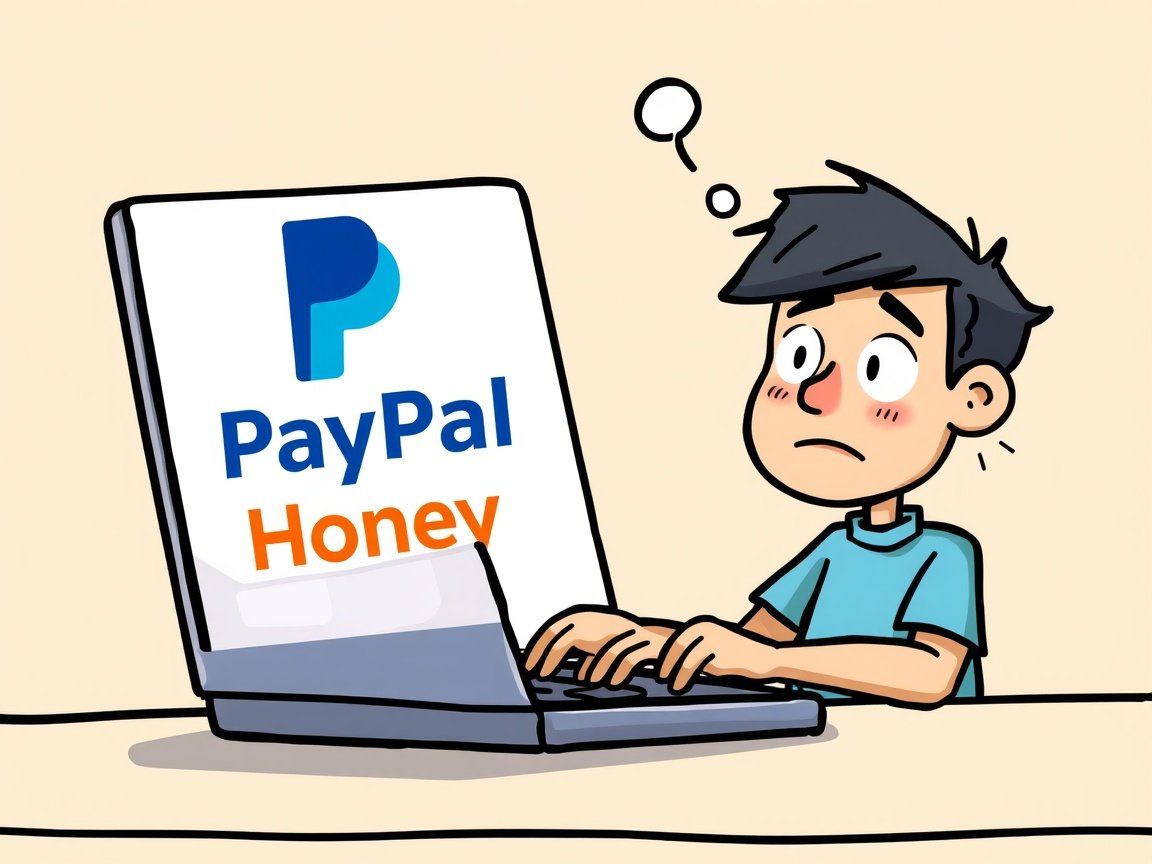Is PayPal Honey a Scam? YES. Exploring the Controversies Surrounding the Popular Browser Extension
The rise of the PayPal Honey browser extension has sparked a considerable debate among users and influencers alike. Initially marketed as a money-saving tool, it has come under fire for allegedly failing to deliver on its promises. In this article, we delve into the intricacies of the Honey browser extension to determine whether it's truly a scam or simply misunderstood.
Understanding PayPal Honey
What is the Honey Browser Extension?
Honey is a popular browser extension owned by PayPal that purports to help users save money by automatically finding and applying coupon codes at checkout. Available on major browsers like Chrome and Safari, the Honey browser extension has gained significant traction, especially during holiday shopping seasons, often promoted by influencers.
It promises to simplify the process of finding discounts; however, recent controversies have challenged its effectiveness and ethical practices, particularly in 2024.
An investigative video by the YouTube channel MegaLag has raised serious allegations regarding Honey's operations, claiming that it scams both users and content creators by manipulating the discounts available. It was also found that the extension is locked into agreed discounts from the actual site, and most of the time, provides no discount while stealing the affiliate links for influencers, marketers and other such people who review and make recommendations for products.
How Does PayPal Honey Work?
PayPal Honey functions by purportedly scanning the internet for available coupon codes and automatically applying the best one at checkout, seemingly making it a convenient tool for millions of users worldwide. The animations are interesting and appear to be doing something. Mostly, they are using background processes to change affiliate marketing links from the original marketer to Paypal's.
Scammy. Very Scammy, especially considering how Honey is a browser extension that many users have found deceptive.
However, critics argue that the extension may not always provide the best deals, as it appears to prioritize certain discounts based on its existing webstore agreements. This behavior raises significant concerns about transparency and whether users are genuinely receiving the best savings possible. Once installed, users notice a popup indicating that Honey is "looking" for coupons, yet it has been alleged that retailers have predetermined what discounts will be shown, suggesting that users might find better deals through independent searches.
Benefits? None for Using Honey for Discounts
Despite its initial appeal, recent investigations have led many to reconsider the benefits of using the Honey browser extension. Allegations have surfaced that Honey recoded affiliate links to siphon commissions, leaving users with no substantial advantages. While Honey once touted convenience and the ability to earn rewards through its cashback program, many users are now questioning whether these features truly outweigh the potential risks. Moreover, there are growing concerns about data privacy, as some believe that such extensions could intercept financial information and store it on offshore servers. As revelations continue to unfold, the previously popular Honey extension now faces scrutiny as a potential scam.
The Allegations of a Scam
Are Influencers Misleading Users?
As the Honey browser extension has gained popularity, influencers, particularly those on platforms like YouTube, have heavily promoted PayPal Honey as a convenient money-saving tool. However, allegations have emerged suggesting that many of these influencers may not fully understand the extension's controversial practices. Users have expressed feelings of being misled by endorsements that often lack transparency regarding potential drawbacks. Critics argue that such influencer marketing raises ethical questions about content creators' responsibilities to provide honest reviews, especially when financial benefits from promoting Honey are involved.
Claims of Affiliate Marketing Manipulation
Investigations into the practices surrounding the Honey browser extension have revealed alarming manipulations within the affiliate marketing system, impacting both users and youtubers alike. Reports indicate that Honey replaces existing affiliate links during the checkout process, diverting commissions that would typically go to content creators. Instead of benefiting the creators who promote their products, Honey allegedly siphons off these funds, raising serious concerns about the integrity of the affiliate marketing model and the role of youtubers. This practice has led to accusations of scamming not only users seeking discounts but also creators who rely on affiliate revenue for their livelihood.
User Experiences and Testimonials on Reddit
User feedback on platforms like Reddit has painted a largely negative picture of the PayPal Honey experience. Many users have shared their frustrations, claiming that the extension often fails to deliver the best available discounts and instead prioritizes its own affiliate agreements. These testimonials reveal a growing distrust among users, who feel disillusioned by the promise of savings that Honey allegedly fails to provide. As the community voices its concerns, it becomes increasingly clear that many users believe they are contributing to a system that benefits PayPal at their expense, further fueling the debate about whether Honey is a scam all along.
Evaluating the Credibility of PayPal Honey. What CREDIBILITY?
Is PayPal Honey a Scam All Along? Yes.
The question of whether PayPal Honey is a scam has gained traction following various allegations about its practices, particularly among youtubers discussing the issue. While it is not classified as a scam in the traditional sense, the accusations of manipulating affiliate links and withholding discounts have led many to feel deceived. PayPal has yet to provide a formal response to these claims, leaving users in a state of uncertainty about the integrity of the extension and its operations.
What Experts Say About Browser Extensions
Experts in digital marketing and cybersecurity emphasize the importance of transparency in browser extensions like Honey. They caution users to be aware of how these extensions operate, especially regarding data collection and affiliate marketing practices that could affect both users and promoted by influencers. The scrutiny surrounding Honey serves as a reminder for users to conduct thorough research before relying on such tools for savings, as the potential for exploitation exists in many digital marketplaces.
I do not use these types of extensions as many have been proven to be behind malvertising and pop-up ads that beceome overqhelming. Others have been found to be stealing keystrokes, sending that data off to a server, where algorithms are used to search for groups of numbers that canbe your credit card number.
Alternatives to PayPal Honey...
There are several alternatives to PayPal Honey that users can explore for money-saving opportunities.
Most companies offer email-list and text message sign-up discounts that provide better options for data and financial security than using a browser extension that can steal data.
Waiting for special sales can benefit the company and the end-user.
Even I find special sales on items and create affiliate links from Amazon for clients to get hard drives and other needed parts for the smooth operation of their computers.
Conclusion: Making Informed Decisions
Weighing the Pros and Cons of Using PayPal Honey
There are no pros to using a browser extension that puports to save money. Most of these have been proven time and again to be scams. This one was released by PayPal and was though to be trustworthy. Oops.
The cons are that is you have this extension installed, you won't be saving money. Any links that I, or others might send you will be rewritten to benefit PayPal - we call that stealing.
How to Spot Potential Scams in Browser Extensions
Ask Scott. He knows.
Is it time for your bi-annual computer checkup anyways?



